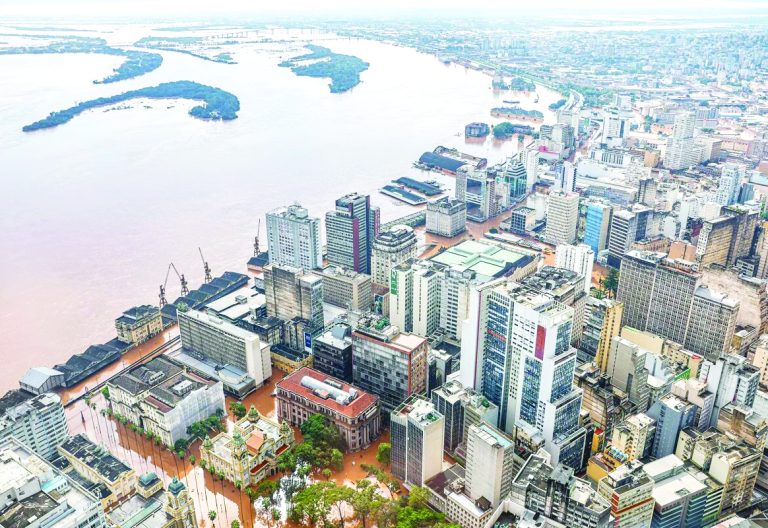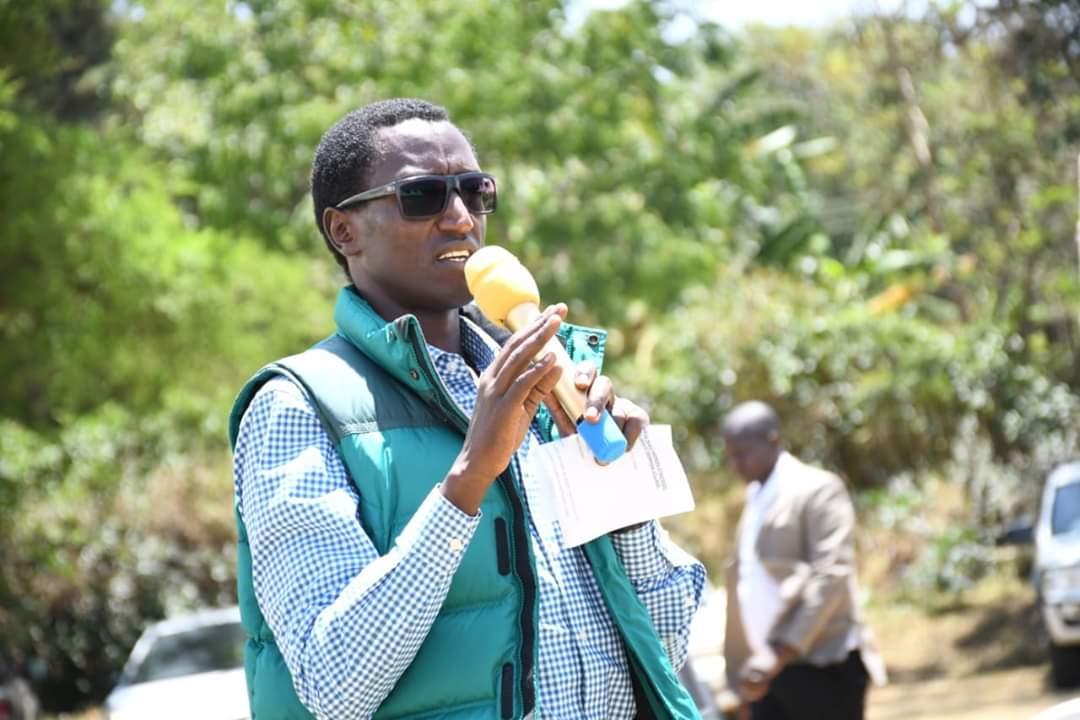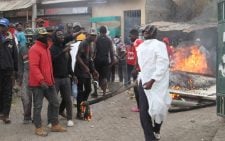Talks on loss and damage fund big boost for exposed nations

World leaders and institutions last week held the first Fund for Responding to Loss and Damage (FRLD) high-level dialogue to advance resilience and support for vulnerable nations.
The meeting on the sidelines of the World Bank-IMF Spring Meetings in Washington, DC, was convened under the leadership of the FRLD board in coordination with the United Nations Secretary-General António Guterres.
Under the theme ‘Strengthening Response(s) to Loss and damage through Complementarity, Coherence and Coordination’, the dialogue brought together senior representatives of partner governments, multilateral development banks, international financial institutions, UN agencies, climate funds, philanthropic organisations, risk financing and insurance entities and civil society actors to foster collective action in response to the growing impacts of climate change.
Speakers included 2024 UN climate summit (COP29) President Mukhtar Babayev and ministers from Germany, Pakistan and South Africa.
In their opening remarks, FRLD board co-chairs Jean Christophe Donnellier and Richard Sherman emphasised the spirit of global solidarity that led to the creation of the fund.
Speedy solutions
They said the dialogue came at a critical juncture in the fund’s development and called for strengthened cooperation to deliver timely and effective support to the most vulnerable nations.
“This fund was launched to strengthen our global capacity to respond to loss and damage, and this requires a response that is timely, adequate, comprehensive and efficient. It is therefore crucial that we work together to streamline our collective global response,” said Donnellier.
Pakistan’s finance minister, Muhammad Aurangzeb, emphasised the need for speed in responding to loss and damage.
“Climate change is an existential threat; we are living it. Even before the floods of June 15 to October 2022 (that killed 1,739 people and caused about US$40 billion in damage). As the fund becomes operational, our request is for simplicity and agility. We are dealing with our own internal bureaucracies in our own countries. We can’t have decisions to take years; what we need are speedy disbursements”.
A key milestone at the event was the presentation of the Proposed Actionable Commitments on Accelerating Action on Climate-Induced Loss and Damage by the FRLD Executive Director, Ibrahima Cheikh Diong, on behalf of the fund and peer financial institutions.
He reaffirmed a collective commitment to unify global responses and reduce fragmentation in funding streams.
“Today marks the beginning of a new era of coordinated action driven by global solidarity and leadership. We reaffirm our collective commitment with our partners and stakeholders to reduce fragmentation in funding streams and ensure that resources are delivered effectively to those who need them most, said Dong, insisting that the shared goal is clear: to ensure that the most vulnerable nations affected by climate-induced loss and damage receive timely and effective support that reflects their priorities and realities.
The event laid the foundation for two roundtables that explored how institutions can better align mandates, close funding gaps and build strategic partnerships.
Continuous dialogue
Participants discussed opportunities to streamline access to finance, support national readiness and pre-arranged financing mechanisms, and enhance collaboration among funding arrangements such as the Climate Investment Funds, the Adaptation Fund, the Santiago Network and Global Shield.
The issue of prevention was brought up, including better use of data and technology. With the gap between the financing available and the needs, prudent and smart approach is necessary.
“The Santiago Network and FRLD are linked by design but also purpose. One of our core functions is to enable access to finance, technology and capacity building. The Santiago Network brings an existing toolbox, technical guidance and a technical assistance platform, and a regional presence with 15 members ready to provide support. This is a call to expand our collective response to loss and damage. We need to collaborate but also act in synchronicity,” said Carolina Fuentes Castellano, director of the Santiago Network secretariat.
The talks concluded with reflections and recommendations on the way forward, highlighting the FRLD’s ambition to begin disbursing an initial US$250 million primarily delivered in grants to support bottom-up, country-led and community-driven interventions, with at least 50 per cent of funding earmarked for small island states (SIDS) and least developed countries (LDCs).
The co-chairs reaffirmed the fund’s commitment to being an inclusive and coordinating force within the climate finance ecosystem.
The full outcomes of the dialogue will be included in the FRLD’s annual report that will be presented at the upcoming COP30 and the CMA (Conference of the Parties serving as the meeting of the parties to the Paris Agreement), shaping future climate finance policies.
The dialogue will set the stage for continuous engagement, ensuring sustainable and inclusive financial mechanisms for affected communities.
FRLD address the urgent and growing needs of vulnerable communities in developing countries facing the irreversible impacts of climate change.
It finances initiatives to help vulnerable communities recover from climate-related losses and damage resulting from incidents such as climate-induced extreme weather events, rising sea levels and other climate-induced crises.
These initiatives are tailored to respond directly to country-specific needs and priorities, ensuring that solutions are locally driven and contextually appropriate.
The Fund for Responding to Loss and Damage will have a direct impact on how developing nations will be able to respond to the worst effects of climate change.
A Senegalese and American national, its executive director Diong brings over three decades of global experience in climate change, finance and development.
According to the United Nations Framework for Convention on Climate Change (UNFCCC), Diong is providing strategic leadership and oversight of the fund’s secretariat and assisting the board in delivering on the fund’s mandate to provide financial support to vulnerable countries hardest hit by climate impacts.
“I am honoured to take this role at such a pivotal time when the climate crisis is proving to be an existential threat to lives and livelihoods, particularly of the most vulnerable communities and developing countries,” Diong said upon his appointment.
He noted that FRLD will make a significant difference to those disproportionately affected, and I take this responsibility with humility and a full commitment to serve.
I look forward to working with the board, our partners and stakeholders to provide crucial support to low-income developing countries most affected by climate change,” he added.
At COP29 in Baku, Azerbaijan, a decision was made to ensure the full operationalisation of the Loss and Damage Fund, long awaited by developing countries, including SIDS, LDCs, and African nations.
The establishment of the fund was agreed upon during COP27 in Egypt. The fund aims to provide financial assistance to countries most vulnerable to the impacts of climate change.
During COP28 in the United Arab Emirates, a decision was made to launch the fund’s operations, which culminated in the commencement of its operations and Diong’s appointment in September during the fund’s third meeting in Baku.
Within the framework of COP29, several important agreements related to the Loss and Damage Fund were signed.
These include the ‘Trustee Agreement’ and ‘Special Hosting Agreement’ between the fund’s board and the World Bank, as well as the ‘Host Country Agreement’ between the fund’s board and the host country, the Philippines.










